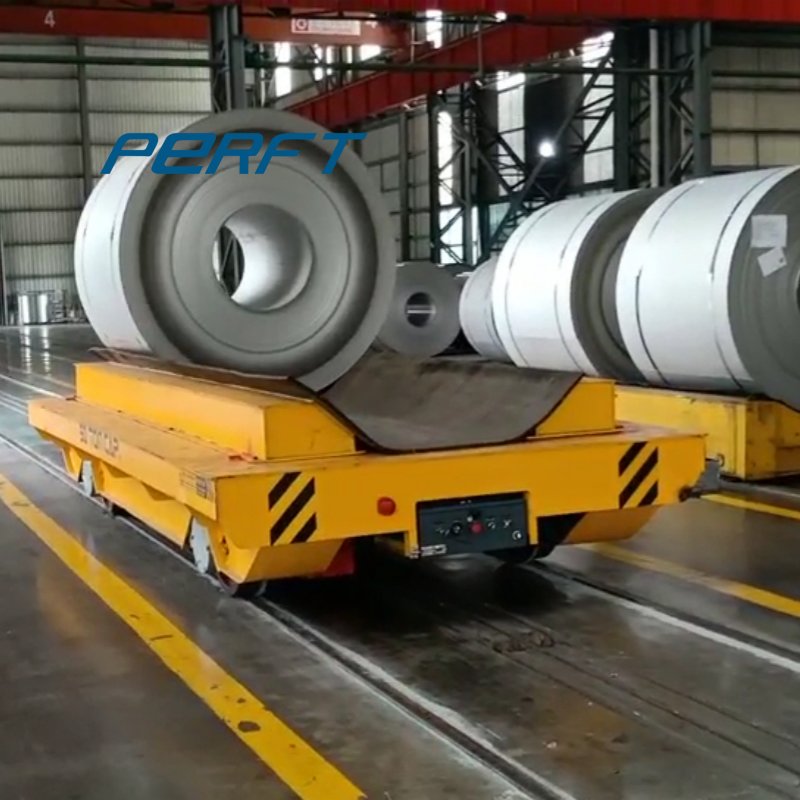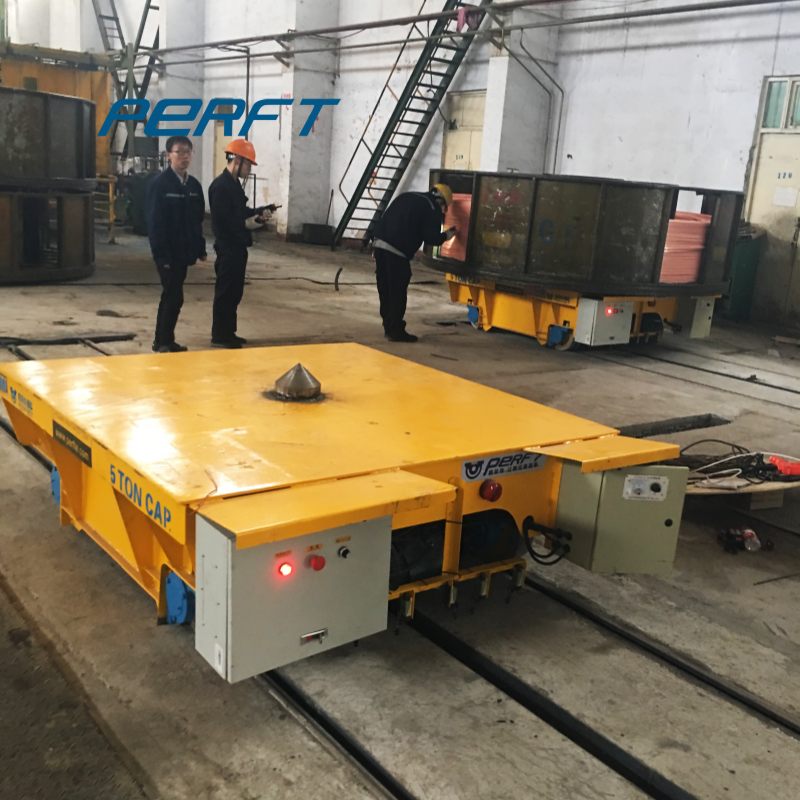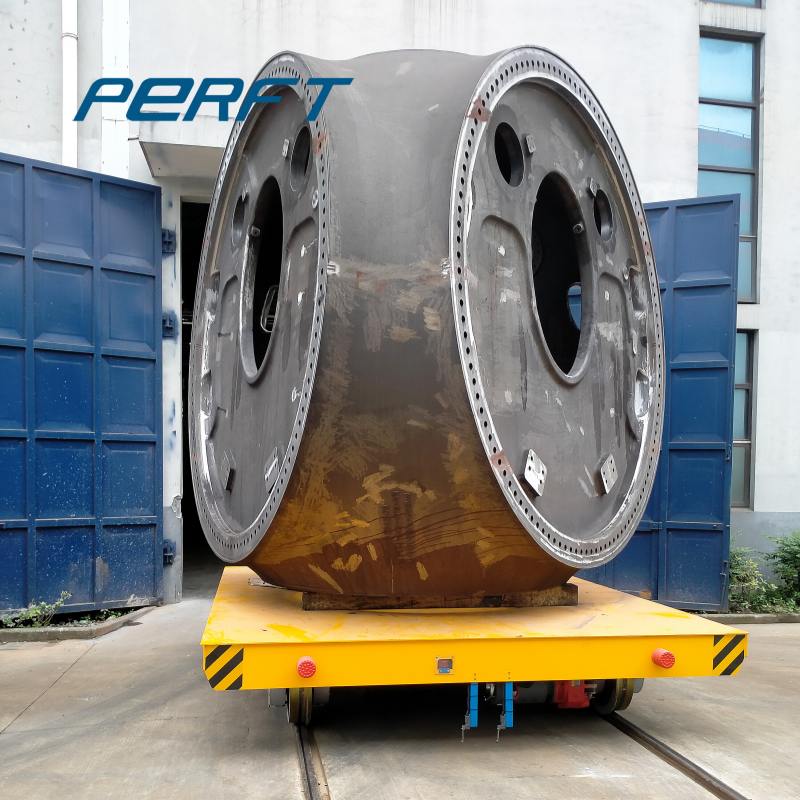Rail guided transfer car 120t for Shandong Foundry Metallurgical Company
Shandong Meide Group Linyi Co., Ltd. is a foundry metallurgical company. The transfer car is mainly used for the transportation of molten steel. The transfer car bears 5 tons, the temperature of the outer surface of the molten steel ladle is 120 tons, and the transfer car table is equipped with refractory equipment. . The transfer vehicle adopts wireless remote control and wired handle, and the transfer carriage positioning method adopts RFID positioning. There are a total of 6 stopping points, and the positioning accuracy is ±5mm. The communication adopts wireless communication to realize remote control and meet the requirements of automation.
The rail-guided transfer car is a transfer carriage used to transport a specific high-temperature ladle. Due to the high temperature and safety, the requirements of the rail-guided transfer car body material, the transmission system, and the electrical control are quite different from those of the ordinary rail car. In order to prevent the splashing of molten steel or steel slag, the motor starts and stops at a slow speed to reduce inertia. In order to prevent the high-temperature radiation of the ladle, the inside of the rail-guided ladle car body is provided with heat-insulating material. In order to prevent the steel temperature from affecting the damage to the motor, Adopt a double motor, one is damaged and the other can continue to work normally. The heavy-duty rail-guided transfer car, also known as the steel water truck. It is also an electric transfer car specially developed by a steel mill to transport high-temperature ladle. Due to the high temperature of molten steel and steel slag, the use of ordinary transfer electric transfer vehicles will cause a series of hazards. In order to avoid the accident of steel and steel slag splashing, causing burns to employees. Our company can customize the product to satisfy customer’s needs on the basis of guaranteeing the customer’s needs.
Back to List
-
上午10:58Rail Transfer Cart For High-Precision Materials
-
 上午8:17Coil Transfer Cart: Battery Powered Or Cable Powered
上午8:17Coil Transfer Cart: Battery Powered Or Cable Powered -
 上午11:09Industrial Rail Trolley Multi-Station Auto Dispatch
上午11:09Industrial Rail Trolley Multi-Station Auto Dispatch -
 下午3:29Why Rail Transfer Solutions Are Preferred In Metallurgical And Casting Operations
下午3:29Why Rail Transfer Solutions Are Preferred In Metallurgical And Casting Operations -
 下午3:29Rail VS Trackless Transfer Cart: Best Choice for Spraying Line?
下午3:29Rail VS Trackless Transfer Cart: Best Choice for Spraying Line?

